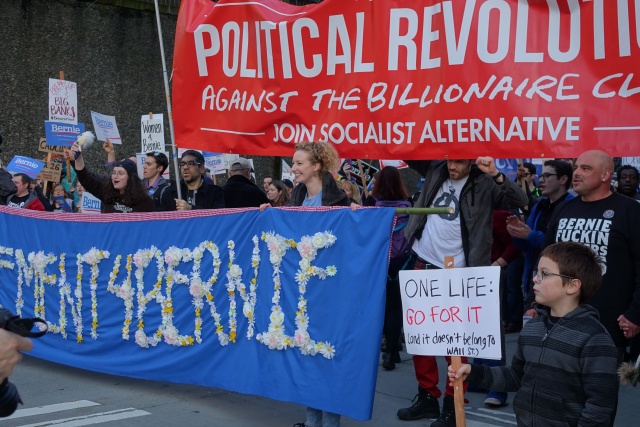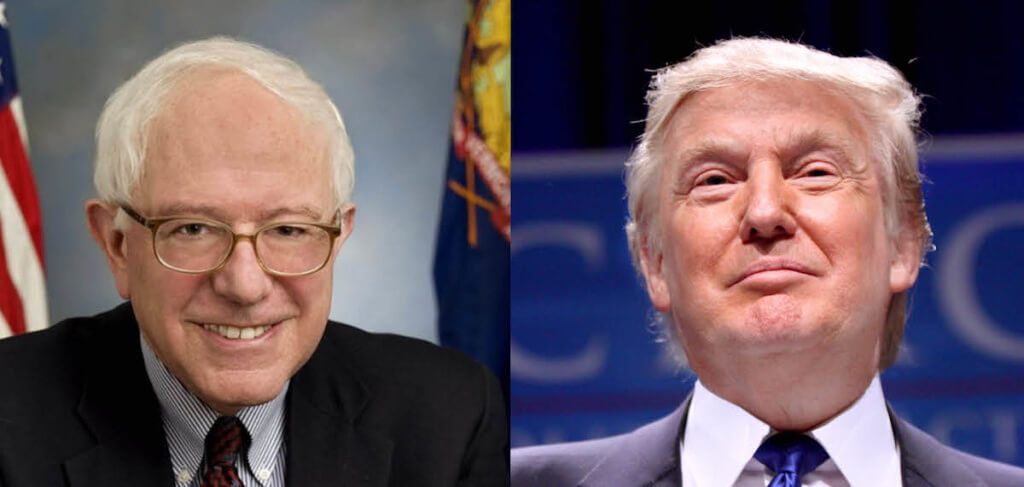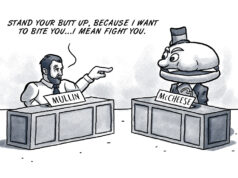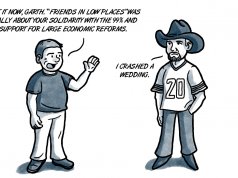
Once again, a public figure is playing fast and loose with terms he either does not understand or is intentionally distorting to serve his own purposes.
Sen. Bernie Sanders’ consistent praise of “democratic socialism” has started a wave of popular support, especially among young people, for a system of political economy that has never existed. Given that this term has no relation to reality, it’s important we understand what socialism is and why no socialist country has ever been democratic.
Socialism, as consistently defined by its adherents and its opponents, is predicated on the absence of private property. As Karl Marx explained, socialism means the end of the “private ownership of the means of production.” Put another way, it means the end of individuals and collections of individuals (corporations) from owning, improving and freely exchanging goods, resources, services, etc. This is fundamental to socialism. If you have private property ownership, by definition, you don’t have socialism.
Why is this important? Because all of Sen. Sanders’ examples of successful “democratic socialism” (primarily Sweden, Denmark, Switzerland and Norway) aren’t socialist at all. They all have market-based capitalist economies. Do they tax their citizens at higher rates than the U.S. does? Yes. Do they spend more on social services than the U.S. does? Yes. But these differences are not what determines whether a country is capitalist or socialist. All of these countries have markets that allow individual ownership and voluntary exchange.
RELATED
Trump, Sanders owe their appeal to American anger by Spencer Livingston Gainey
These countries rely on market capitalism to produce the wealth that they subsequently choose to redistribute. Indeed, it is pretty well established that only market capitalism can produce the kind of wealth that would allow governments to provide the level of social services found in these countries. No truly socialist country — one preventing private property ownership and voluntary exchange — has ever been able to produce the wealth or the quality of services we see in these countries.
Which leads me to my second point: There is no example in all of history in which a real socialist country has ever been democratic in its operations. Neither the Soviet Union, China, Cuba, North Korea nor any other country that attempted to incorporate the abolition of private property and institute state ownership of the means of production has ever done so within institutions of democratic governance. All of them accomplished this transition not through the peaceful means of debate, persuasion, negotiation and votes, but through the power of the gun. They literally killed millions of people (intentionally and unintentionally) to accomplish their vision of a socialist utopia that ended private property.
The abolition of markets and the ownership of private property that is exchanged through them was always the central goal of socialist revolutions. The fact that this was always accomplished via violent means and not democratic procedures and the fact that these countries subsequently become impoverished should tell us something about this system. Socialism is incompatible with democracy because democracy, like market capitalism, allows power to flow to the individual.
Democracy tolerates dissent, individual differences and different values. Market capitalism allows those preferential differences to be managed peacefully through voluntary exchange. As Friedrich Hayek noted in The Road to Serfdom, socialism cannot tolerate these differences nor the democratic institutions that facilitate the peaceful resolution of these differences. Unfortunately, when a major candidate for the presidency describes a fundamentally market-capitalist economic systems as “socialist” — and few on the left or right point out the error — it creates confusion about what these terms mean and how they impact individuals and societies.
The purpose here isn’t to argue whether the U.S. should be spending more on social services like the countries Sanders praises. Even free-market economists have very different opinions on the level of redistribution that can occur within a market-based economy. The point is: Sanders misleads the public by perpetuating the myth that socialism is in any way capable of producing the wealth these countries enjoy, or that it has ever demonstrated itself to be compatible with democracy.
Ideas have consequences. The idea of socialism has, in every instance where it was seriously attempted, wreaked major destruction on the social, political and economic institutions that actually facilitate democracy and economic growth. In its wake, it has left death and misery for the very people in whose name it was enacted. It’s time to acknowledge this fact and dispense with the fantasy of “democratic socialism.”






















